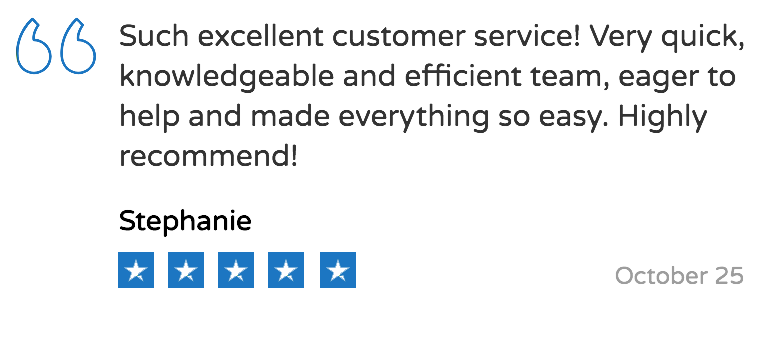Your
6+ Years Acing Homework | 350k+ Happy Students
- Homework
- Assignment
- Quiz
- Test
- Proctored Exam
- Essay
- Project
- Full Online Class
Get Homework Help on These Platforms
We have extensive experience doing homework for students on these online platforms boosting your grades
- Canvas
- Backboard
- Pearson MyLab
- MyMathLab
- MathXL
- WebAssign
- MyOpenMath
- ConnectMath
- HawkesLearning
- Connect
- Aleks
- D2L (Desire2Learn)
- Cengage
- Moodle
- WileyPlus
- MacGraw-Hill
- Straighterline.Com
- Sophia.Org
- Study.Com
- Many Others
Time Management Strategies for Busy Accounting Students
As an accounting student, you’re no stranger to a packed schedule. Between studying, classes, and maybe even a part-time job, it can feel like there’s just not enough hours in the day. But don’t worry, you’re not alone in this struggle, and there are proven strategies to help you take control of your time.
Time management is not just about squeezing more tasks into your day. It’s about prioritizing, planning, and making the most of the time you have. For busy accounting students like you, mastering these skills can be a game-changer. In this text, we’ll share some effective time management strategies to help you balance your academic load, reduce stress, and even find free time you didn’t know you had. Stay tuned.

Balance studies and fun effortlessly
Identify Your Priorities
Let’s plunge right into the first strategy. Identifying your priorities is more vital than you might think. It can be the difference between fretful all-nighters and a well-managed academic schedule that leaves room for leisure.
So, how can you identify your priorities? It all comes down to distinguishing between what’s important and what’s urgent. Think of your tasks as a grid of boxes, where both categories meet.
| Important | Not Important | |
|---|---|---|
| Urgent | Box 1 | Box 2 |
| Not Urgent | Box 3 | Box 4 |
Your goal should be to focus on tasks in Boxes 1 and 3.
To start, make a list of all the tasks you need to do in a given week. This could include attending lectures, studying, practicing your accounting skills, doing chores, and engaging in social activities.
Once you’ve got your list, it’s time to categorize tasks into boxes. Ask yourself these questions:
- Which activities contribute most to my academic success? Put them in Box 1.
- Which activities might seem urgent but aren’t really contributing to my goals? They go in Box 2.
- What tasks are beneficial but don’t need immediate action? Box 3 is where they belong.
- Finally, are there tasks that don’t contribute to my success and aren’t urgent? Sadly, but efficiently, they find their home in Box 4.
Set Clear Goals
Setting clear goals is a fundamental step in time management. As a busy accounting student, you might find yourself overwhelmed with tasks, assignments, and study sessions. Here’s where goal-setting comes into play.
Goals provide direction, helping you focus and make efficient use of your time. But remember, a goal shouldn’t merely be a statement. It should define what you want to achieve, when you should reach it, and how you’re going to get there.
Let’s break down the process a bit.
Step One: Identify Your Goals
Your goals can vary from long-term (like graduating with honors) to short-term goals (like completing an assignment by its deadline).
Step Two: Be Specific
A vague goal is like a headless chicken – directionless. For instance, instead of writing down ‘to study more’, specify it. It can be something like ‘study four hours per day’.
Step Three: Make Them Measurable
Make sure you can track your progress. If your goal was ‘study four hours per day’, you can measure it by how many hours you’ve actually studied each day.
Step Four: Ensure They’re Achievable
Your goal should push you but still remain within your reach. Unfeasible goals can lead to discouragement and stress, undermining your productivity.
Step Five: Assign a Time Frame
A goal without a deadline is unlikely to be completed. Assigning a time frame creates a sense of urgency and helps keep you motivated.
Following these steps will assist you in creating clear, effective goals that drive your productivity, lessen stress, and promote academic success. Remember, goal setting is not a one-time event, but a dynamic process. Goals will change as your circumstances do, so be prepared to revise or set new goals as needed.
In the next section, we’ll investigate into the practical applications of these goals in your day-to-day life. We’ll explain how you can use task prioritization strategies to manage and execute those goals. Stay tuned.
Create a Schedule
Having a clear view of your tasks and deadlines plays a pivotal role in time management. Say hello to schedules. They’re your time management best friend. Schedules provide a centralized overview of everything that requires your attention. It’s more than just jotted down class timings or exam dates; it’s about weaving in every aspect of your life into an easy-to-read framework. Let’s investigate into how schedules can help you in more detail:
Visibility of Academic Load: A well-drafted schedule displays your academic workload clearly. This makes it easier to identify heavy workdays, and you can evenly distribute tasks to avoid burnout.
Reduce Stress: Knowing exactly what lies ahead can take a huge amount of stress off your shoulders. You aren’t second-guessing what’s next, reducing procrastination and anxiety.
Spare Time Discovery: When you visualize your tasks, you can unveil pockets of spare time that you may not have noticed otherwise.
Getting your schedule together isn’t a Herculean task. Here’s a straightforward process:
- Identify Tasks: Everyone has different commitments. Start by jotting down everything that you need to accomplish.
- Prioritize: Armed with your task list, rank them according to incidence and importance.
- Fill in Your Schedule: Allocate timeslots to your tasks based on your priority list. The idea is to create a roadmap of your commitments.
Your mission is simple. Get a schedule in place and stick to it. It’s okay to adjust the timings as long as you’re ticking those tasks off your list.
Break it Down
So, you’ve identified priorities and have a well-defined goal in sight. Fantastic! But what do you do now? Well, that’s where the concept of breaking things down comes in. This time management strategy requires you to break down your larger tasks or goals into smaller, manageable parts. Sounds simple, right? Let’s explore deeper.
Imagine you have a big exam coming up, which covers multiple chapters or even the entire course. Instead of absorbing the entire syllabus in one sitting, break it down. Each session, focus on a specific topic or chapter. It’s not only a great stress-reliever, but it also helps ensure you deeply understand and retain the material.
How should you break down your tasks? It largely depends upon the nature of the task at hand. Here are few simple rules for you:
- If it’s a study-related task, consider dividing it by topics or chapters.
- For projects or assignments, you could break it down by different sections or stages.
- If it’s a comprehensive exam, break it down by subjects, then by topics.
It doesn’t stop with breaking things down. Organize your tasks effectively. Use calendars, planners, or project management tools to help with this. These tools provide visual clarity and efficiently manage your smaller tasks. As a result, you’re always in control of your workload.
Eliminate Distractions
Before we investigate further into breaking down tasks, there’s a critical step that’s often overlooked: minimizing distractions. Just as important as any planning or prioritizing task, the power to focus can be the key to unlocking your full potential. In the digital age we’re continually bombarded with notifications and alerts that drastically hamper our productivity. Here are some tactics that you can use to combat these interruptions and help you concentrate on getting your tasks completed.
A key player in the world of distractions is your smartphone. They’ve become indispensable in our lives, yet they also tend to take up chunks of our time. Try using apps that block social media during study hours or invest in a simple kitchen timer and use the Pomodoro Technique: study for 25 minutes then take a 5-minute break.
Also, your study environment can contribute to how effective you are at staying focused. Aim to keep your study space clean and free of irrelevant bits and pieces. The saying “out of sight, out of mind” applies here. If possible, set up a dedicated workspace just for studying that’s separate from relaxation or recreational areas.
Lastly, identify your personal distraction triggers. Everyone has different things that sidetrack them – maybe it’s noise, certain websites, or checking emails. Once you’re aware of these, you can take measures to eliminate or minimize them during your study time.
The art of time management for busy accounting students doesn’t stop at listing tasks and prioritizing, it’s also about setting the right conditions to create an environment conducive for focus. The less time you waste wrestling with distractions, the more time you have to devote to the things that matter; after all, time is a non-renewable resource. In the next section, we explore the wonders of breaking down tasks into manageable pieces.
Use Time Blocking
One of the most effective time management methods you can adopt is time blocking. Time blocking is an approach that requires you to divide your day into distinct blocks of time. Each block is assigned a specific task or group of tasks. This technique discourages multitasking by focusing your energy and attention on one task at a time.
How can you implement time blocking in your routine? Here’s a straightforward method:
- Identify the tasks you need to accomplish. This could include studying for exams, attending classes, or handling accounting projects.
- Estimate how much time each task will take. Don’t be too optimistic – it’s better to overestimate than underestimate.
- Start dividing your day into blocks. Assign each task to a suitable time block.
The key is to stick to your time blocks as closely as possible. Although adjustments are inevitable, staying faithful to your blocks ensures this strategy’s effectiveness.
A successful time block schedule might resemble this:
| Time Block | Task |
|---|---|
| 8 am – 10 am | Studying for Audit Class |
| 10 am – 12 pm | Completing Accounting Project |
| 1 pm – 3 pm | Attending Business Law Class |
| 3 pm – 5 pm | Group Study for Corporate Finance |
Adding this strategy to your time management toolbox can help you maintain focus, decrease procrastination, and improve productivity.
A little known secret about time blocking is the power of adding leisure activities to your schedule. Contrary to what you might think, scheduling time for relaxation and hobbies isn’t a waste of time but rather a necessary part of maintaining a balanced and healthy schedule.
Keep testing and refining your time blocking process until it fits your style and needs. Remember, improving your time management skills is a journey, not a one-time event. As an accounting student, adopting proven strategies like time blocking can aid you in successfully managing your busy schedule. After all, effective time management is about making the most of each day – one block at a time.
Take Breaks
As an accounting student, it’s easy to get caught up in the cycle of studying, attending lectures, and completing assignments. While it’s crucial to stay dedicated to your academic responsibilities, it’s equally important to prioritize downtime and take regular breaks. Regular breaks can enhance your productivity, improve your concentration, and help maintain steady levels of performance.
Let’s understand how taking breaks can positively influence your time management strategies.
Improved Concentration and Efficiency
Studying or working for prolonged periods usually leads to decreased productivity and focus. According to a study by DeskTime, the most productive people work for 52 minutes and then break for 17 minutes. This balance allows the brain to rest and recharge, leading to higher performance levels when you resume work.
Boosted Creativity
Breaks aren’t just beneficial for resting your brain. They also spur creativity. A rested brain thinks more clearly and is more capable of thinking outside the box. If you’re stuck on a challenging problem, stepping away from your desk for a short break might provide the fresh perspective you need.
Reduced Stress
Regular breaks also play a crucial role in stress management. When you allow yourself to relax and unwind, it calms your mind and decreases tension. Instead of being constantly buried in books and stress, a simple act of taking a break can make a noticeable difference in your stress levels.
Incorporating breaks into your schedule doesn’t mean wasting time. In fact, it’s an integral part of a successful time management strategy. As you plan your day with time blocking, including breaks makes sure that you’re not burning out and are functioning at your best each day.
Here’s how to plan your breaks effectively:
- Start Small: Begin with taking a 5-minute break every hour.
- Be Active: Use your break time to stretch, walk around or meditate.
- Disconnect: Try to take a break from screens and digital devices if possible.
Remember, time management isn’t just about squeezing work into every available minute. It’s about efficiently using your time and preserving your mental energy to best meet your academic goals.
Delegate and Outsource
Time management isn’t just about squeezing every minute of your day to complete tasks. A significant part of managing your time involves knowing when to delegate or outsource tasks. As an accounting student, you might be asking, “But what exactly can I delegate or outsource?” Well, let’s jump into this strategy.
First, take a good look at your to-do list. Are there tasks that can be managed by someone else? Consider your group projects – it’s not necessary for you to handle all the parts. Share out the sections so every group member contributes. You can also seek assistance from TAs or professors when you’re struggling with certain concepts instead of wasting time trying to figure them out on your own.
In the digital age, there is a rich variety of online platforms offering academic assistance. These platforms can help you understand complex topics, proofread your assignments or even offer one-to-one tutoring. Services such as Chegg, Course Hero, and even our own Paysomeonetodo.com specialize in this. Explore these resources; they can play a priceless role in managing your academic load.
Outsourcing chores you’re overwhelmed with is another clever time-saving strategy. Opt for laundry or grocery delivery services when your schedule is super tight, or consider meal-prep services during finals week. Remember, the aim is to leverage these services to clear up your schedule, thus making room for more pressing academic tasks and reducing your overall stress.
Here are some key precautions to remember as you implement this strategy:
- Only delegate or outsource tasks that eat a larger chunk of your time than necessary.
- Ensure your chosen service is trustworthy and reliable.
- Assess the potential risks involved. Not every task should be outsourced.
By integrating outsourcing and delegation into your regimen, you can start mastering the art of time management. So, why not begin with mapping out which tasks could be delegated or outsourced starting from the coming week? Experiment with these approaches, and remember: adaptation and refinement are parts of the process, too.
Stay Organized
Optimizing your time without being properly organized can be a fruitless effort. As an accounting student, having a systematic approach can help you stay on top of tasks and keep your schedule streamlined.
Consider digitizing your notes and materials. It’s one effective way to ensure everything is easily accessible and organized. Apps like Evernote or OneNote can store all your lecture notes, research materials, and other academic stuff in one place. You might want to try using cloud storage platforms like Dropbox or Google Drive for easy access to your files no matter where you are.
Keeping a clean and tidy workspace can also boost productivity. A clutter-free desk helps in maintaining a clutter-free mind, leading to an increase in your focus and reducing unnecessary stress while studying.
Create a digital or physical ‘to-do’ list to give a quick overview of your pending tasks and keep track of your progress. Applications like Trello or Asana are renowned for their effectiveness in handling task management so it’s worth giving them a try.
Let’s not forget about email organization. Keep your inbox clutter-free by creating specific folders for different categories of emails – assignments, lecture notes, extra-curricular activities, and so on. Using email filters will automatically sort incoming mail and cut your email maintenance time significantly.
Remember, staying organized involves experimenting with different systems and sticking to what suits you best. Don’t be afraid to try new methods and modify them to complement your studying style and requirements. You’re creating a unique system that works specifically for you, after all. Empower your academic journey by adopting these organization strategies today.
Learn to Say No
The art of time management for busy accounting students isn’t just about prioritizing, scheduling, and managing distractions. There’s a little secret ingredient that can make a big impact: learning to say no.
As an accounting student, you’re likely to be bombarded with requests and invitations. Group study invitations, extra project responsibilities, or social gatherings, the list can go on. Now while you might want to take everything up and be the ‘go-to’ person, it’s important to realize that every ‘yes’ is a trade-off against time that could have been spent studying, relaxing, or pursuing other meaningful activities.
Learning to say no is a crucial skill in managing your time effectively. Is that extra project necessary for your academic growth or is it just to please a fellow student? Does that social gathering align with your schedule or will it just further stress you out? Asking these critical questions help determine which requests deserve a yes and which ones can be turned down politely.
Strategically declining requests isn’t a sign of weakness or rudeness. On the contrary, it shows that you’re protective of your time and you’ve set your priorities straight. Keep in mind, each opportunity you say no to is actually a yes to something better – more focused study time, less stress, and a better academic life balance.
It’s no mean feat to master the art of saying no, but with practice and persistence, you’ll be able to make the most of your time as an accounting student. As each request comes your way, weigh it against your priorities and make the decision that best benefits your academic and personal goals. Remember, your time is precious. Make every second count.
Conclusion
Mastering time management as an accounting student is no small task. Yet, it’s a crucial skill that can make your academic journey smoother and less stressful. Prioritizing tasks, setting clear goals, and creating a well-thought-out schedule are key strategies to help you manage your time effectively. Breaking down tasks into manageable parts, eliminating distractions, and incorporating time blocking into your routine can further enhance your productivity. Remember, taking regular breaks and learning to delegate or outsource tasks aren’t signs of inefficiency. They’re smart strategies to preserve your mental energy and focus on what’s truly important. Staying organized and learning to say ‘no’ when necessary can also help you protect your time and achieve a better academic life balance. Time management is a dynamic process. So, don’t be afraid to adjust your strategies as needed. Your future self will thank you.
REQUEST A QUOTE Chat, Text or Email Us and Get a Quote Within Minutes
Order NowThe difficulty of a subject can be and is a big challenge for students. When concepts are hard to grasp, especially in subjects like advanced mathematics or statistics, these students see no other choice but to reach out to websites that provide homework assistance. This is especially the case with students that are taking their classes online who are missing the study group experience with their peers or hearing an in-person lecture on campus.
An overwhelming workload from multiple classes can make it challenging for many students to dedicate the necessary time and energy to all those homework assignments. When faced with deadlines for essays, projects and exams all due around the same time, the pressure can easily push students to hire someone to do that coursework. It is easy to assume that students can handle everything, but when faced having to free up countless hours to manage a heavy workload, the time is just not there.
Stress and anxiety about meeting fast approaching deadlines can be extremely overwhelming for students. The fear of not having studied enough to pass that test or exam when faced with increasing performance expectations by the academia can be paralyzing. This can lead to a situation where students feel that the only way to make it through is by paying someone to do their homework and make it one step closer to graduation.
A lack of time is another major factor driving students to outsource their homework. Busy schedules filled with extracurricular activities, part-time jobs, and family commitments can leave little to no room for homework and exams. This lack of available time is particularly challenging for college students who are trying to balance overwhelming academic responsibilities with personal development and a fulfilling social life. There are many aspects of life that are more important and hiring homework help services is the better alternative for achieving a balance.
Real Customer Reviews













